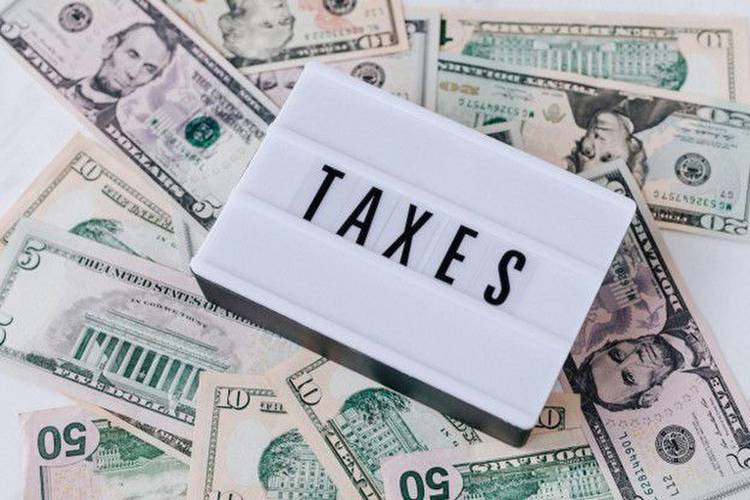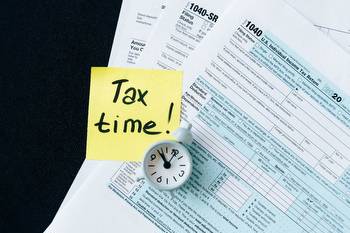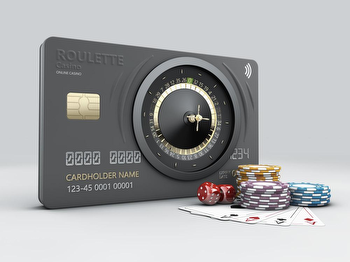Casino Taxes. Tax Comparison: Us vs. UK and Ireland

Each country has a specific set of laws regulating its casino industry. Gambling markets differ in many respects. For example, gambling is legal in some countries and illegal in others. Or there are certain forms of gambling that are legal, whereas others are not. Moreover, some countries don’t allow certain payment methods to be used for betting. In addition, some have different regulations depending on the region.
Another common example of where gambling industries differ is operating costs. In some countries, operators are obliged to pay casino taxes on their profits, whereas gamblers cover these costs in others. However, this article will focus specifically on the US, UK, and Irish gambling scene in terms of taxation. Do you have to pay taxes on casino winnings in these countries, or is it something that gambling establishments take care of? If yes, how much?
Casino Taxes in the United Kingdom and Ireland
In the UK, players don’t have to pay taxes on their winnings. Instead, operators are legally obliged to pay tax on their gross income. The percentage operators have to meet can be either high or low. In the case of the United Kingdom gambling scene, it is the former. Casino operators in the UK must pay 50% of their profits. Still, there are countries with higher percentages, such as Austria or France.
Similar to the UK gambling sites, online casinos Ireland do not tax gamblers on their receivings. Rather, operators have to meet a certain percentage of tax. Furthermore, the amount depends on the total number of bets or winnings that go through a particular operator. In Ireland, bookmakers must provide 1% on all bets placed through their service. In that sense, Ireland is among the countries with the lowest tax rates in the world.
Summary
To sum up, do you pay taxes on casino winnings in the UK or Ireland? No, this is handled by betting companies, whereby the percentage differs between the two countries. Read on to learn what the situation is with the US gambling market. Who is legally responsible – operators or users?
Gambling Dues in the United States
Much like in the UK and Ireland, the US taxes casino businesses on their revenue. This rate, however, varies depending on the state, but gambling winnings are also taxable in the US. As casino winnings are taxable, every player is obliged to report the income on their tax return. The Internal Revenue Service, or short IRS, is in charge of this.
When do you have to pay taxes on casino winnings? Gambling income includes lotteries, casinos, horse races, sweepstakes, etc. Therefore, whenever you win engaging in the said activities, you will have to provide a certain percentage. Moreover, this is not valid only on receivings in the form of money. Rather, the market value of prizes, like cars, trips, and similar, are also fully taxable.
How Much Do Gamblers Have to Pay?
The next thing you would like to know is what the tax rate is. Know that there is no need to search casino taxes by state because the same law applies everywhere in this case. When you win a substantial amount of money, the payer of your winnings will deduct 24% from your payout. Additionally, the payer will give you a copy of the form to record this transaction.
It is important to note that the ‘substantial’ amount differs depending on whether you bet on sports, games, etc. Thus, the substantial amount for slot machine games is $1,200 or more. The same goes for bingo games. As for keno, you must pay the tax on your gambling winnings if you receive $1,500 or above. Then, lotteries, sweepstakes, and wagering pools have this amount set at $5,000, and so on.
It is also worth mentioning that 24% is an estimated tax. Therefore, players may get some of it back. Similarly, they can owe more than this percentage later on. Also, keep in mind that taxes on winnings at games of skill are not withheld immediately. These include blackjack, poker, and so on. Nevertheless, gamblers still have to report their income and pay taxes in a timely fashion.
The amount you owe, as opposed to an estimated amount, depends on gamblers’ total income for the year. As of the 2021 year, players need to have an individual income of at least $164,925 (with their receivings included) to owe more than an estimated tax. On the other hand, if their total income doesn’t exceed $86,376, gamblers might get some money back.
Do Operators Report Casino Earnings to the IRS?
Operators do report gambling winnings to the IRS. However, there are certain thresholds that have to be exceeded for a casino to report winnings. This threshold amount depends on the type of game. For instance, gambling sites must report winnings that exceed $600 or 300x your initial bet at a horse racing track. As for slot machines and bingo games, it is $1,200, whereas in a poker tournament, it is $5,000.
Deductible Losses
It is worth noting that gambling losses are deductible, provided you itemize your deductions. Nonetheless, they are deductible but only up to the number of their receivings. Furthermore, they need to be ready to prove it through records of their losses and winnings.
Summary
Take a look at the summarized version of what happens if you win a substantial amount while betting:
- Firstly, the payer will deduct 24% from your gambling winnings immediately.
- Upon filing their annual tax return, bettors will record their receivings along with their tax payments. In addition, they may need to give more money or get a certain amount back.
- Note that players can deduct gambling losses.
Professional Players
Do you pay taxes on casino winnings if you are a professional player? Yes. Nevertheless, their receivings are considered regular earned income. In light of that, gambling proceeds are taxed at a taxpayer’s normal effective income tax rate.
Foreign Gamblers
State tax should apply only to residents, right? Well, not exactly, even non-US residents can be taxed when winning. As stated, operators will automatically deduct a certain amount if your winnings exceed a specific threshold. So even if you are a tourist in Vegas and you win, you still have to give up 30% of your reward. Luckily, there is a tax treaty with certain countries, and if you belong to that nationality, you can be exempt from a 30% withholding tax. That being said, you will likely have to apply to get that refund because the operator might automatically withhold 30%.
Can You Circumvent These Dues?
You are probably wondering what happens when you play on an online casino that operates outside of the US. It is possible to access these sites from certain states, but that might not be such a good idea. As foreign operators, they are not regulated by the US gambling commission. So, there is no one to hold them accountable if they deny you payouts. This is why most gamblers steer clear of those platforms. But, if you wish to take a leap of fate, you can play there and enjoy the full winning prize, as there is no automatic withholding process.
Still, you have to report all of your income to the IRS, so if you receive that cash on any US account and choose not to report it, you can get fined. This can be avoided if you choose to play on crypto casinos. As you know, crypto wallets and the market, in general, aren’t subject to US regulatory framework. Additionally, you can play on some of these sites anonymously. So, as long as you stay under the radar and don’t make any big purchases, you can effectively hide your winnings from the IRS. Again, you would be doing this at your own risk, and it’s difficult to predict how laws regarding cryptocurrencies will evolve.
Conclusion
To sum up, gamblers in countries like the United Kingdom and Ireland are not required to pay taxes on their winnings. The situation in the US is different, and they are legally obliged to pay a tax on their winnings.
In addition, they are automatically taxed if they win the so-called substantial amount. These vary depending on the gambling activity players take part in. Moreover, the rate, which amounts to 24%, is an estimated tax. As a result, players may owe less or more than the amount stated.






























